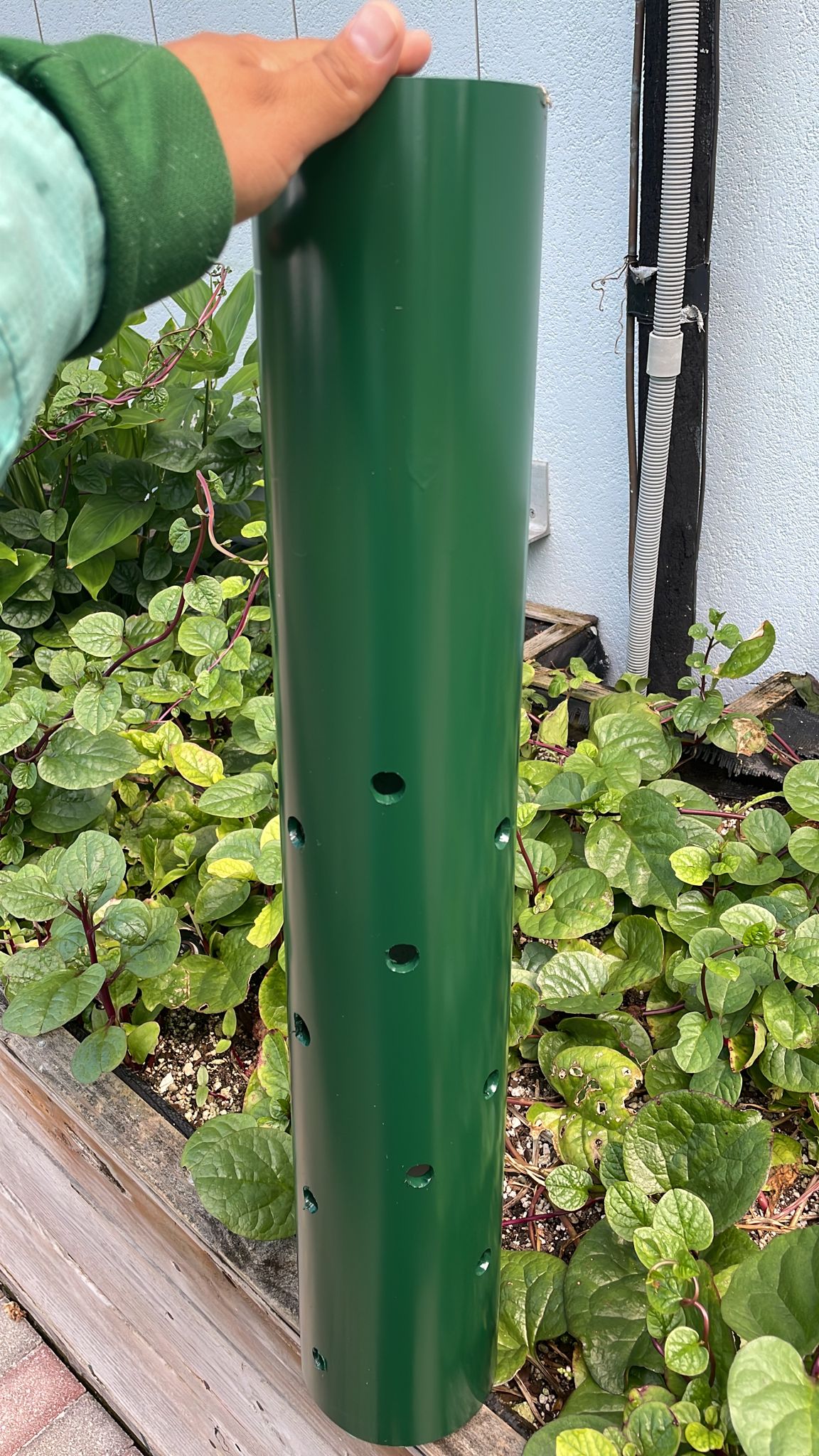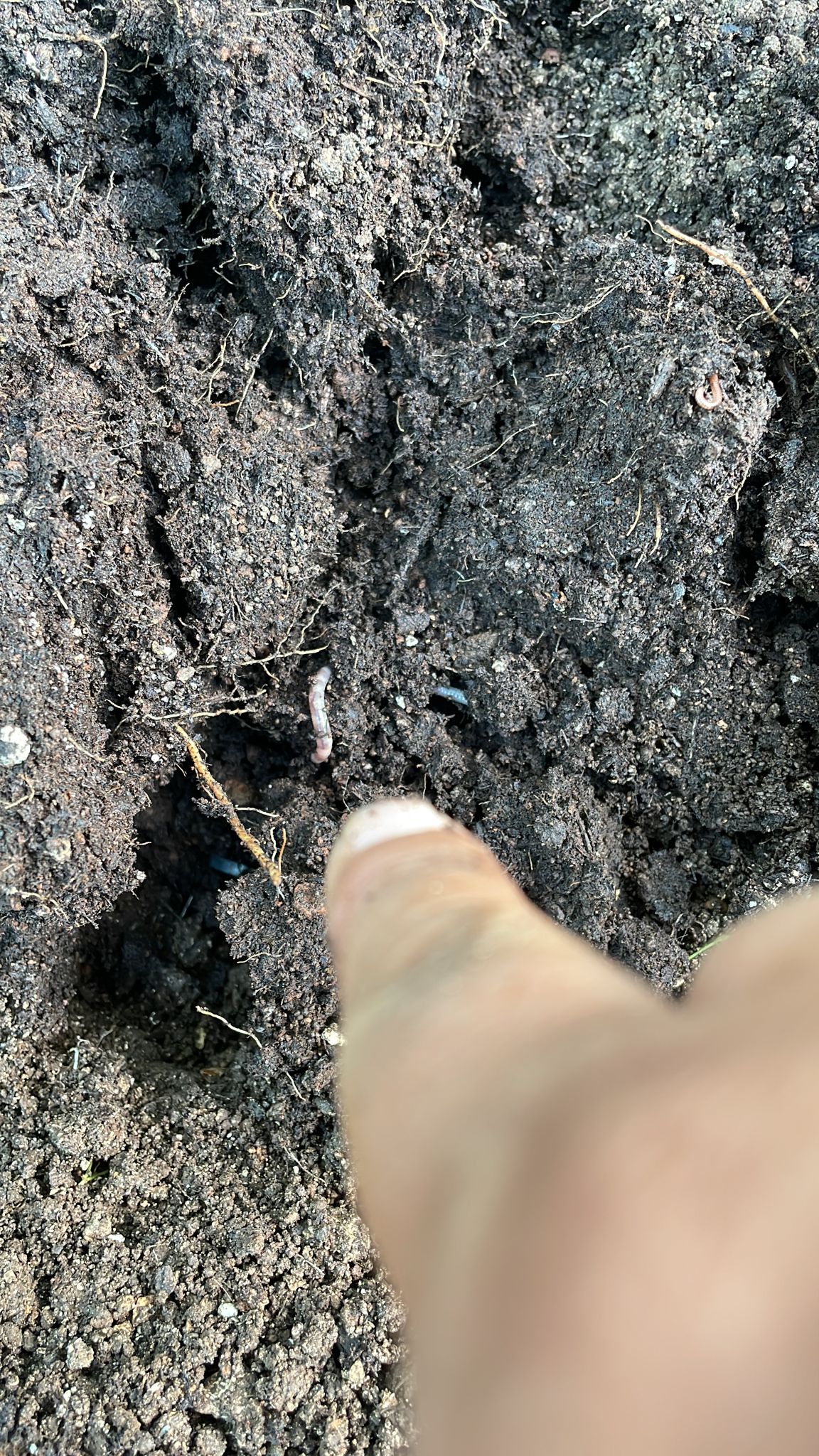By Louise FitzRoy
We’re building hotels in Cricket Square.
Yes, you heard correctly. Earthworm hotels.
The first hotels have just been installed in The Brasserie organic gardens, with the aim of increasing our earthworm population and the production of vermicompost on site.
Worm hotels, if you don’t already know what they are, is not a place for sleepy-eyed worms to check-in for the night after a long day of travelling. Surprisingly, it’s actually the worms that are running the hotel, and our food and green waste is the guest. Leafy greens and chopped mango peel check-in for a several-month stay and then leave refreshed and ready for their new life as a nutrient-rich fertiliser.
Introducing vermicompost! Vermicomposting is an organic and biological process in which earthworm species are primarily used to convert organic matter or biodegradable wastes into manure. The produced vermicompost is rich in nutrition and widely used as bio fertiliser in organic farming. We will delve further into this in another blog.
Back to the worm hotels. Our Head Gardener, Aide Davila, and team have built these structures using 3-foot of piping. Holes are drilled into the bottom third of the pipe that is buried in the garden bed, while the other 2-feet of pipe stands above the ground.

“We’ve made six hotels, two in each garden bed. The bottom of the tube is covered, and the worms enter through the holes, where they find delicious garden and food waste like greens, leaves from the flowers and herbs, and chopped mango peel and potato skins. Things like avocado and mango seeds and citrus must go into the regular compost,” says Aide.
“The worms suck and decompose the organic matter, which is added to the tube from the opening at the top, covered by a lid.”

Not all worms have the same life cycle. They need food to reproduce and a worm hotel, with plenty of organic matter to feast on, can assist to speed up this process.
“We’d like to welcome red worms from California to our hotels, as their digestive systems are more productive than other worms, however supply is low.
“We can transfer the new worms to our other garden beds, and their castings (vermicompost) will be used to improve the fertility of the soil.”
Compost is great and returns nutrients to the soil, however vermicompost is the ideal organic manure. It is preferable by many due to its higher nitrogen, phosphorus and potassium content, and its ability to improve the soil structure, and increase water-holding capacity.
“It will take about 60 days for the worms to multiply, and so we hope to have our first batch of vermicompost ready in about two months.
“Our goal is to fertilise every plant in Cricket Square and the gardens at other Orchid Development properties with our own vermicompost, as current compost prices are high and it’s getting difficult to source. We are trying to prepare for the future.”
